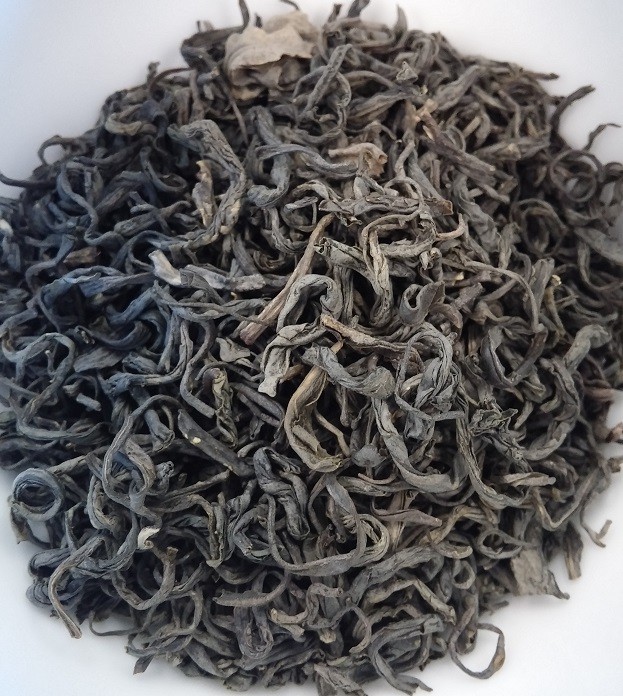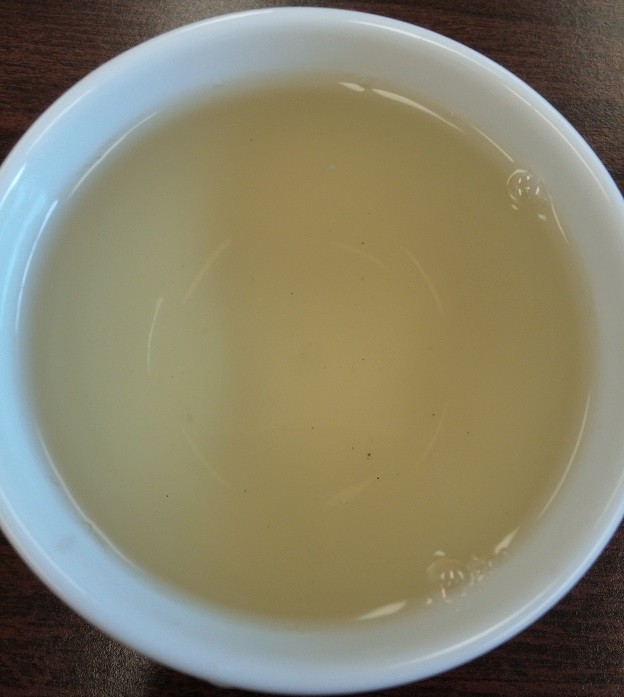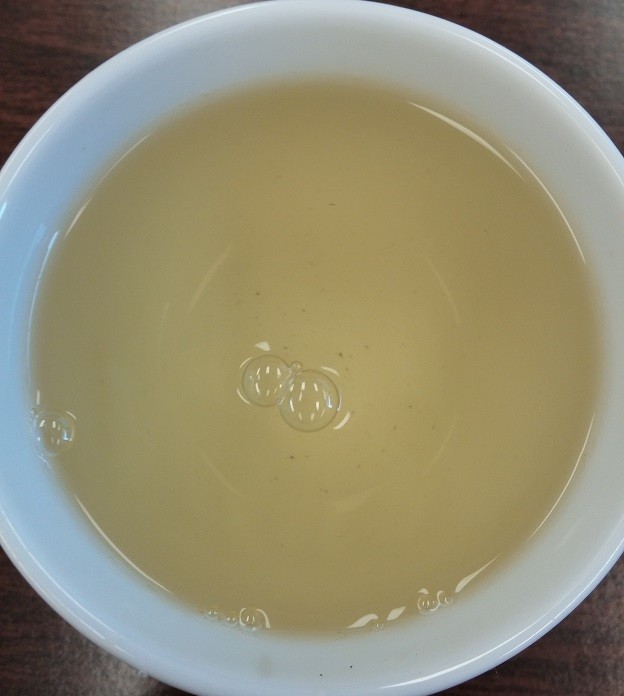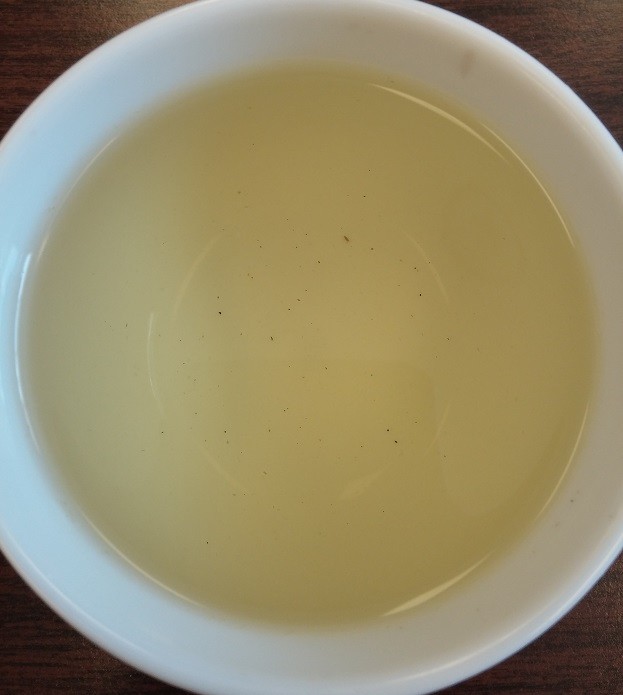Tan Cuong tea is undoubtedly famous, but what other tea varieties thrive in Thai Nguyen province? SIXT.VN is here to guide you through the lush tea gardens of Vietnam, revealing the diverse range of flavors and experiences awaiting your discovery. Get ready to explore the rich tapestry of Vietnamese tea culture with our expert travel advice, ensuring a seamless and unforgettable journey. Discover hidden gems and the best local experiences that Vietnam has to offer, from traditional tea ceremonies to breathtaking landscapes.
1. Exploring the Tea Paradise of Thai Nguyen
Thai Nguyen, a province located north of Hanoi, is renowned as a premier tea-growing region in Vietnam. The favorable climate and fertile soil create ideal conditions for cultivating a wide variety of tea plants. While Tan Cuong tea holds a special place in the hearts of tea enthusiasts, the province boasts many other exceptional teas. Let’s delve into the diverse world of Thai Nguyen teas.
1.1. The Geographical Advantage of Thai Nguyen
Thai Nguyen’s unique geographical location plays a crucial role in its tea cultivation success. Situated near the Red River Delta, the province benefits from a subtropical climate with distinct seasons, providing the ideal conditions for tea plants to thrive.
The climate in Thai Nguyen is characterized by:
- High Humidity: Consistent moisture levels are essential for the healthy growth of tea leaves, preventing them from drying out and ensuring a lush, vibrant harvest.
- Moderate Temperatures: The temperatures in Thai Nguyen remain relatively mild throughout the year, avoiding extreme heat or cold that could damage the tea plants.
- Abundant Rainfall: Regular rainfall provides the necessary hydration for the tea plants, contributing to the rich flavor and aroma of the tea leaves.
The combination of these climatic factors, along with the fertile soil, creates a perfect environment for tea cultivation, allowing Thai Nguyen to produce a diverse range of high-quality teas. According to a report by the Vietnam National Tea Association in 2023, Thai Nguyen’s tea production accounts for approximately 30% of the country’s total tea output.
1.2. Soil Composition and Its Impact on Tea Quality
The soil composition in Thai Nguyen is another key factor that contributes to the unique characteristics of its teas. The soil is rich in minerals and nutrients, providing the tea plants with the essential elements they need to grow and develop their distinct flavors.
Key components of the soil include:
- Rich in Organic Matter: The presence of decomposed organic matter enhances the soil’s fertility, providing a natural source of nutrients for the tea plants.
- Well-Drained: The soil’s structure allows for efficient drainage, preventing waterlogging and ensuring that the tea plants’ roots receive adequate oxygen.
- Slightly Acidic: The slightly acidic nature of the soil is ideal for tea cultivation, as it helps to release essential nutrients that the plants can easily absorb.
The unique soil composition in Thai Nguyen, combined with the favorable climate, results in tea leaves that are rich in flavor, aroma, and beneficial compounds. This combination has led to the region’s reputation as a producer of some of the finest teas in Vietnam.
2. Beyond Tan Cuong: Unveiling Other Tea Varieties
While Tan Cuong tea is a star, Thai Nguyen offers a delightful array of other tea varieties. Each type possesses its unique characteristics, catering to different palates and preferences.
2.1. Thai Nguyen Green Tea
Thai Nguyen Green Tea encompasses a range of green teas produced in the province, each offering a slightly different flavor profile. These teas are known for their fresh, vegetal notes and invigorating qualities.
Characteristics of Thai Nguyen Green Tea:
- Processing: Typically processed using traditional methods, involving withering, steaming, rolling, and drying to preserve the tea’s natural flavors and aromas.
- Flavor Profile: Offers a refreshing, vegetal taste with subtle hints of sweetness and a lingering aftertaste.
- Health Benefits: Rich in antioxidants and other beneficial compounds, promoting overall health and well-being.
2.2. Shan Tuyet Tea
Shan Tuyet tea is a specialty tea grown in high-altitude regions of Thai Nguyen. The name “Shan Tuyet” translates to “snow mountain,” referring to the white, fuzzy buds that cover the tea leaves.
Distinctive Features of Shan Tuyet Tea:
- Unique Appearance: Characterized by its large, silvery leaves covered in white down, giving it a distinctive appearance.
- Complex Flavor: Offers a complex flavor profile with notes of honey, flowers, and a subtle hint of spice.
- Limited Production: Grown in remote, mountainous areas, making it a rare and highly sought-after tea.
2.3. Oolong Tea
Oolong tea production has gained popularity in Thai Nguyen, with tea farmers experimenting with different oxidation levels to create unique and flavorful oolongs.
Variations of Oolong Tea in Thai Nguyen:
- Lightly Oxidized Oolong: Offers a light, floral flavor with a smooth, delicate texture.
- Medium Oxidized Oolong: Possesses a balanced flavor with notes of roasted nuts and a hint of fruitiness.
- Highly Oxidized Oolong: Delivers a rich, robust flavor with hints of caramel and a lingering sweetness.
2.4. Black Tea
While green tea is the most prevalent type in Thai Nguyen, some farmers also produce black tea. Thai Nguyen black tea is known for its malty notes and smooth character.
Qualities of Thai Nguyen Black Tea:
- Full-Bodied Flavor: Offers a full-bodied flavor with notes of malt, chocolate, and a subtle hint of spice.
- Smooth Texture: Possesses a smooth, velvety texture that makes it a pleasure to drink.
- Versatile Beverage: Can be enjoyed on its own or paired with milk and sugar for a more indulgent experience.
3. The Art of Tea Cultivation in Thai Nguyen
Tea cultivation in Thai Nguyen is a meticulous process that requires skill, knowledge, and a deep respect for nature. Tea farmers employ traditional techniques passed down through generations to ensure the quality and flavor of their teas.
3.1. Traditional Farming Practices
Thai Nguyen tea farmers adhere to traditional farming practices that prioritize sustainability and environmental preservation.
Key Aspects of Traditional Farming:
- Organic Fertilizers: Using natural fertilizers, such as compost and manure, to nourish the tea plants and enrich the soil.
- Natural Pest Control: Employing natural methods, such as introducing beneficial insects, to control pests and diseases.
- Hand-Picking: Harvesting tea leaves by hand to ensure that only the finest leaves are selected, preserving the quality of the tea.
3.2. The Tea Harvesting Process
The tea harvesting process is a crucial step in determining the quality of the final product. Tea farmers carefully select the leaves to be harvested based on their size, maturity, and appearance.
Stages of Tea Harvesting:
- Timing: Harvesting typically takes place during the spring and autumn seasons when the tea leaves are at their peak flavor.
- Leaf Selection: Selecting only the young, tender leaves, known as “two leaves and a bud,” to ensure the highest quality tea.
- Gentle Handling: Handling the leaves with care to avoid bruising or damaging them, preserving their delicate flavors and aromas.
3.3. Tea Processing Techniques
After harvesting, the tea leaves undergo a series of processing steps to transform them into the finished product. These steps include withering, rolling, oxidation (for oolong and black teas), drying, and sorting.
Traditional Tea Processing Methods:
- Withering: Spreading the tea leaves out to dry in the sun or in a well-ventilated area to reduce their moisture content.
- Rolling: Rolling the leaves to break down their cell walls and release their essential oils, contributing to the tea’s flavor and aroma.
- Oxidation: Exposing the leaves to oxygen to develop their characteristic color and flavor (for oolong and black teas).
- Drying: Drying the leaves to remove any remaining moisture and stabilize their flavor.
- Sorting: Sorting the leaves based on their size and quality to ensure a consistent product.
 Tan Cuong Green Tea Dry Leaves
Tan Cuong Green Tea Dry Leaves
4. Tea Tourism in Thai Nguyen: A Sensory Experience
For tea enthusiasts and travel lovers, a trip to Thai Nguyen offers a unique opportunity to immerse oneself in the world of tea. Tea tourism is gaining popularity, allowing visitors to experience the beauty of the tea gardens and learn about the art of tea making.
4.1. Visiting Tea Plantations
Many tea plantations in Thai Nguyen welcome visitors, offering guided tours and tea-tasting experiences.
What to Expect on a Tea Plantation Tour:
- Scenic Views: Enjoying breathtaking views of the rolling hills covered in lush green tea plants.
- Tea Education: Learning about the tea cultivation process, from planting to harvesting to processing.
- Tea Tasting: Sampling a variety of Thai Nguyen teas, each with its unique flavor and aroma.
4.2. Participating in Tea Ceremonies
Experiencing a traditional Vietnamese tea ceremony is a cultural immersion that provides insight into the importance of tea in Vietnamese society.
Elements of a Vietnamese Tea Ceremony:
- Preparation: Observing the careful preparation of the tea, including selecting the right tea leaves, heating the water to the perfect temperature, and using traditional tea ware.
- Presentation: Appreciating the artful presentation of the tea, from the way it is poured to the way it is served.
- Appreciation: Savoring the flavor and aroma of the tea, while engaging in conversation and enjoying the company of others.
4.3. Purchasing Authentic Thai Nguyen Tea
No trip to Thai Nguyen is complete without purchasing some authentic local tea. Buying tea directly from the source ensures that you are getting the freshest, highest quality product.
Tips for Buying Tea in Thai Nguyen:
- Visit Local Markets: Exploring local markets to find a wide variety of teas at competitive prices.
- Buy Directly from Farmers: Purchasing tea directly from tea farmers to support their livelihoods and ensure the authenticity of the product.
- Look for Reputable Brands: Choosing reputable tea brands that are known for their quality and ethical sourcing practices.
5. SIXT.VN: Your Gateway to Exploring Thai Nguyen’s Tea Culture
Planning a trip to Thai Nguyen to explore its tea culture can be exciting, but also overwhelming. SIXT.VN is here to help you create a seamless and unforgettable experience.
5.1. Tailored Travel Itineraries
SIXT.VN offers tailored travel itineraries designed to suit your interests and preferences. Whether you’re a tea enthusiast, a nature lover, or a cultural explorer, we can create a personalized itinerary that meets your needs.
Customized Itinerary Options:
- Tea Plantation Tours: Arranging visits to the best tea plantations in Thai Nguyen, with guided tours and tea-tasting experiences.
- Cultural Immersion: Organizing cultural experiences, such as traditional tea ceremonies and cooking classes.
- Outdoor Adventures: Planning outdoor activities, such as hiking, biking, and kayaking, to explore the natural beauty of Thai Nguyen.
5.2. Convenient Transportation Services
Navigating a new place can be challenging. SIXT.VN provides convenient transportation services to ensure that you can explore Thai Nguyen with ease.
Transportation Solutions:
- Airport Transfers: Providing safe and reliable airport transfers to and from Hanoi, ensuring a smooth start and end to your trip.
- Private Car Rentals: Offering private car rentals with experienced drivers, allowing you to explore the region at your own pace.
- Group Transportation: Arranging group transportation for larger groups, ensuring everyone travels comfortably and safely.
5.3. Accommodation Assistance
Finding the right accommodation is crucial for a comfortable and enjoyable trip. SIXT.VN can help you find the perfect hotel or guesthouse in Thai Nguyen, based on your budget and preferences.
Accommodation Options:
- Luxury Hotels: Recommending luxury hotels with stunning views, world-class amenities, and exceptional service.
- Boutique Hotels: Suggesting boutique hotels with unique character, personalized service, and a local touch.
- Guesthouses and Homestays: Arranging stays in guesthouses and homestays, providing an authentic cultural experience and the opportunity to interact with local families.
 Tan Cuong Green Tea 1st Infusion
Tan Cuong Green Tea 1st Infusion
6. Health Benefits of Thai Nguyen Tea
Beyond its exquisite taste and cultural significance, Thai Nguyen tea offers numerous health benefits. Rich in antioxidants and other beneficial compounds, tea consumption can contribute to overall well-being.
6.1. Antioxidant Properties
Thai Nguyen tea is packed with antioxidants, which help protect the body against damage from free radicals.
Benefits of Antioxidants:
- Cell Protection: Protecting cells from damage, reducing the risk of chronic diseases.
- Anti-Aging Effects: Slowing down the aging process by combating oxidative stress.
- Immune System Support: Strengthening the immune system, helping the body fight off infections.
6.2. Cardiovascular Health
Studies have shown that tea consumption can promote cardiovascular health by improving blood vessel function and reducing blood pressure.
Cardiovascular Benefits:
- Lowering Blood Pressure: Helping to lower blood pressure, reducing the risk of heart disease and stroke.
- Improving Cholesterol Levels: Improving cholesterol levels by increasing HDL (good) cholesterol and reducing LDL (bad) cholesterol.
- Preventing Blood Clots: Preventing blood clots, reducing the risk of heart attack and stroke.
6.3. Cognitive Function
Tea contains caffeine and L-theanine, which can enhance cognitive function and improve mental clarity.
Cognitive Benefits:
- Improved Focus: Enhancing focus and concentration, making it easier to stay on task.
- Increased Alertness: Increasing alertness and reducing fatigue, improving overall productivity.
- Reduced Stress: Promoting relaxation and reducing stress, helping to improve mood and cognitive performance.
7. Brewing the Perfect Cup of Thai Nguyen Tea
To fully appreciate the flavor and aroma of Thai Nguyen tea, it’s essential to brew it properly. The brewing process can significantly impact the taste of the tea.
7.1. Water Temperature
Using the correct water temperature is crucial for extracting the optimal flavor from the tea leaves.
Recommended Water Temperatures:
- Green Tea: 170-180°F (77-82°C)
- Oolong Tea: 180-190°F (82-88°C)
- Black Tea: 200-212°F (93-100°C)
7.2. Steeping Time
Steeping time also plays a significant role in the flavor of the tea. Over-steeping can result in a bitter taste, while under-steeping can leave the tea weak and flavorless.
Recommended Steeping Times:
- Green Tea: 1-3 minutes
- Oolong Tea: 3-5 minutes
- Black Tea: 4-7 minutes
7.3. Tea-to-Water Ratio
Using the correct tea-to-water ratio ensures that the tea is neither too strong nor too weak.
Recommended Tea-to-Water Ratio:
- General Guideline: 1 teaspoon of tea leaves per 8 ounces (240 ml) of water
8. Preserving and Storing Thai Nguyen Tea
Proper storage is essential to maintain the freshness and flavor of your Thai Nguyen tea.
8.1. Optimal Storage Conditions
- Airtight Container: Store tea in an airtight container to prevent oxidation and moisture absorption.
- Cool, Dark Place: Keep the container in a cool, dark place away from direct sunlight and heat.
- Avoid Strong Odors: Store tea away from strong odors, as tea leaves can easily absorb surrounding scents.
8.2. Shelf Life of Different Tea Types
- Green Tea: Best consumed within 6-12 months for optimal freshness.
- Oolong Tea: Can last up to 2 years if stored properly.
- Black Tea: Can maintain its flavor for several years if stored in ideal conditions.
 Tan Cuong Green Tea 2nd Infusion
Tan Cuong Green Tea 2nd Infusion
9. Pairing Thai Nguyen Tea with Vietnamese Cuisine
Enhance your culinary experience by pairing Thai Nguyen tea with local Vietnamese dishes.
9.1. Green Tea Pairings
- Fresh Spring Rolls: The light, refreshing flavor of green tea complements the delicate flavors of fresh spring rolls.
- Seafood Dishes: Green tea’s vegetal notes pair well with the flavors of seafood dishes.
- Vegetarian Dishes: Green tea enhances the flavors of vegetarian dishes, providing a refreshing contrast.
9.2. Oolong Tea Pairings
- Roasted Meats: The roasted notes of oolong tea complement the flavors of roasted meats.
- Spicy Dishes: Oolong tea can help balance the heat of spicy dishes.
- Dim Sum: Oolong tea is a traditional pairing with dim sum, enhancing the flavors of the various dishes.
9.3. Black Tea Pairings
- Hearty Soups: The full-bodied flavor of black tea pairs well with hearty soups.
- Rich Desserts: Black tea can cut through the sweetness of rich desserts, providing a balanced flavor profile.
- Savory Pastries: Black tea complements the flavors of savory pastries, such as meat pies and quiches.
10. The Future of Tea Production in Thai Nguyen
The tea industry in Thai Nguyen is constantly evolving, with farmers adopting new techniques and technologies to improve the quality and sustainability of their products.
10.1. Sustainable Practices
- Organic Farming: More farmers are adopting organic farming practices to reduce their environmental impact.
- Water Conservation: Implementing water conservation techniques to protect this precious resource.
- Soil Health Management: Focusing on soil health management to improve soil fertility and reduce erosion.
10.2. Innovation and Technology
- Precision Agriculture: Using precision agriculture techniques to optimize tea production.
- Advanced Processing Methods: Implementing advanced processing methods to improve tea quality and consistency.
- E-Commerce: Utilizing e-commerce platforms to reach new markets and consumers.
10.3. Supporting Local Communities
- Fair Trade Practices: Supporting fair trade practices to ensure that tea farmers receive fair prices for their products.
- Community Development: Investing in community development projects to improve the livelihoods of local residents.
- Promoting Tea Tourism: Promoting tea tourism to create economic opportunities for local communities.
FAQ: Your Questions About Thai Nguyen Tea Answered
1. What makes Tan Cuong tea so special?
Tan Cuong tea is renowned for its unique flavor, characterized by a slightly grassy taste with a hint of sweetness, and its beautiful emerald green color. The specific soil and climate of the Tan Cuong region contribute to these distinct qualities.
2. How does Thai Nguyen tea differ from other Vietnamese teas?
Thai Nguyen tea is known for its consistent quality and distinct flavor profiles. Compared to teas from other regions, it often has a more pronounced vegetal note and a smoother, more refined taste.
3. Can I visit tea plantations in Thai Nguyen?
Yes, many tea plantations in Thai Nguyen welcome visitors. These tours offer insights into tea cultivation, processing, and the chance to sample various teas. SIXT.VN can arrange these visits for you as part of a tailored travel itinerary.
4. What is the best time of year to visit Thai Nguyen for tea tourism?
The best time to visit Thai Nguyen for tea tourism is during the spring (March-May) or autumn (September-November) seasons. The weather is pleasant, and the tea leaves are at their peak flavor.
5. How do I ensure I am buying authentic Thai Nguyen tea?
Purchase tea from reputable sources, such as established tea shops or directly from tea farmers. Look for certifications and labels that indicate the tea’s origin and quality.
6. What are some tips for brewing Thai Nguyen green tea?
Use water that is heated to around 170-180°F (77-82°C) and steep the tea for 1-3 minutes. Avoid over-steeping to prevent a bitter taste.
7. What are the health benefits of drinking Thai Nguyen tea?
Thai Nguyen tea is rich in antioxidants, which can help protect against cell damage, support cardiovascular health, and improve cognitive function.
8. How should I store Thai Nguyen tea to maintain its freshness?
Store tea in an airtight container in a cool, dark place away from direct sunlight and strong odors.
9. Are there different grades of Thai Nguyen tea?
Yes, Thai Nguyen tea comes in various grades, depending on the quality of the leaves and the processing methods used. Higher grades typically have a more refined flavor and aroma.
10. Can SIXT.VN help me plan a complete tea-themed tour of Thai Nguyen?
Absolutely! SIXT.VN specializes in creating personalized travel itineraries that cater to your interests. We can arrange transportation, accommodation, tea plantation visits, and cultural experiences to provide you with an unforgettable tea-themed tour of Thai Nguyen.
 Tan Cuong Green Tea 3rd Infusion
Tan Cuong Green Tea 3rd Infusion
Conclusion: Embark on Your Tea Journey with SIXT.VN
Thai Nguyen is a treasure trove of tea experiences, waiting to be explored. While Tan Cuong tea is a must-try, don’t miss the opportunity to discover the other exceptional varieties that this region has to offer. Let SIXT.VN be your guide, ensuring a seamless, enriching, and unforgettable journey through the heart of Vietnamese tea culture.
Ready to embark on your tea adventure? Contact SIXT.VN today to start planning your personalized tour of Thai Nguyen! Visit our website at SIXT.VN or call our hotline/WhatsApp at +84 986 244 358. Our address is 260 Cau Giay, Hanoi, Vietnam. Let us help you create memories that will last a lifetime, exploring the flavors, landscapes, and traditions of Vietnam.



